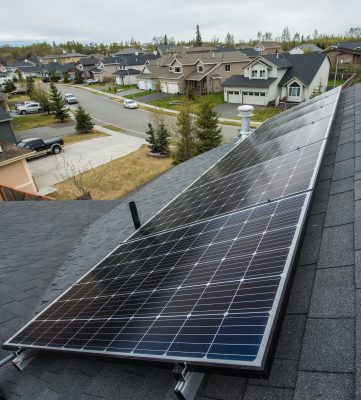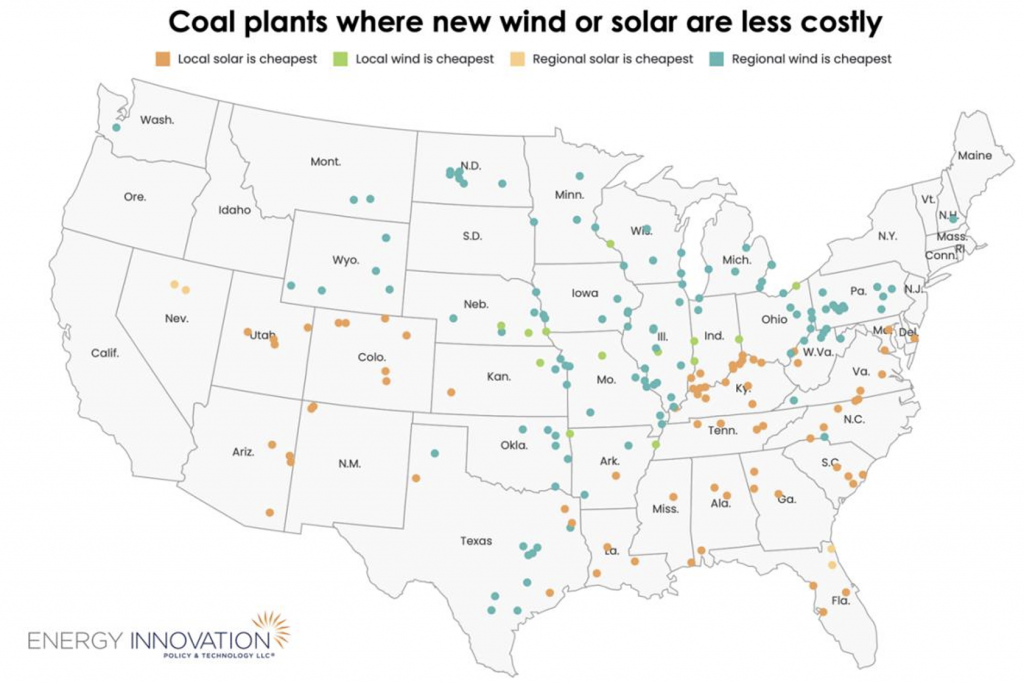Front Porch Blog

Charlotte public hearing on North Carolina Carbon Plan. Photo by Tracy Watts
In part one, we discussed the failure of the commission to listen to commenters and interveners, and how the commission has set the state on the wrong path.
In this second part, I’ll cover some aspects of why methane gas expansion would be harmful to ratepayers and is no longer needed to transition away from large carbon-emitting energy sources like coal. Coal is the largest carbon dioxide emitter in our state’s energy landscape, and retiring coal is a crucial part of decreasing carbon emissions.
Both the commission and Duke Energy cite more methane gas as a necessity in order to retire coal plants in North Carolina. In their final filing, the commission wrote, “Retirements generally require replacement resources to maintain the resource adequacy of the system“ while maintaining “operational flexibility and reliability at a reasonable cost” (page 64).
However, the argument for methane gas relies heavily on outdated models that inflate the cost-effectiveness of the fuel. Replacing coal with renewable energy is now cheaper than replacing coal with continued fossil fuel use. A recent report by Energy Innovation said the average cost to run a coal plant facility was $44 per megawatt-hour, but building solar close to these coal plants would only cost about $20 per megawatt-hour to run and building them could now be less expensive due to incentives within the Inflation Reduction Act. Energy News reported that “the money Duke saves by switching to renewables could be reinvested in up to 8.6 gigawatts of 4-hour battery storage in North Carolina, according to the analysis, nearly as big as the state’s entire coal fleet.”
Energy Innovation “Coal Cost Crossover 3.0” (2023)
One big reason the cost of renewable energies like solar is going down is because of last year’s passage of the Inflation Reduction Act, which gives tax incentives for renewable energy. Unfortunately, the timing of the North Carolina bill and the resulting carbon plan prevented the commission from requiring Duke to fully consider all the Inflation Reduction Acts benefits in its proposal, something that must be remedied in the 2024 filing. However, the timing did not stop Duke from passing on solar incentives to their customers in Florida, who can expect refunds totaling $56 million from solar credits.
The next phase of the carbon plan must take the Inflation Reduction Act into consideration. Fully considering the Inflation Reduction Act means that the carbon plan can better address environmental justice issues, like the health injustices associated with converting retiring coal plants to burn gas in communities already overburdened by pollution. These communities are eligible for additional tax credits, increasing the incentive to invest in renewable energy instead of gas.
By allowing Duke to pursue near-term gas expansion, the commission also put North Carolina residents at risk for painful energy price increases. The Attorney General’s Office, which intervened in the process, pointed out that Duke’s price modeling did not reflect events like the Russian invasion of Ukraine and that current gas prices “are significantly higher than the worst case scenario that Duke modeled in its Carbon Plan proposal” (p. 73). So far, approving these short-term measures to expand gas has not increased the rate of coal retirement, and the commission followed Duke’s power plant retirement plan, leaving some coal plants online until 2036 (p. 63).

June 1, 2018 – Residential solar project in Anchorage, Alaska by Arctic Solar Ventures Corp. (Photo by Dennis Schroeder / NREL)
The commission’s reliance on near-term action neglects the potential of renewable energy deployment well into the future including wind, both onshore and offshore. The commission did not set goals for wind beyond simply asking Duke to pursue an unspecified amount of wind generation.
It is clear that the North Carolina Utilities Commission is not going to be the climate champions some had hoped for, so where do we go from here?
One positive aspect of the commission’s focus on near-term action means that we have many more opportunities to fight back against Duke’s next phase of planning, so here are some things we want to watch:1. Fight “certificates of public convenience and necessity” for gas
To pursue gas, Duke Energy must still file for a “certificate of public convenience and necessity” citing the location of the gas plants. It is important that activists across the state, not just in these locations, engage in fighting these proposals — especially because many of these communities have much more to gain from renewable energy deployment.
2. Duke Energy needs to develops targeted environmental justice plans
Environmental justice must be addressed. The final order had four paragraphs devoted to the issue and Duke Energy did essentially no outreach to marginalized communities and communities overburdened by pollution prior to releasing their proposal prior to their proposed plan. The North Carolina Utilities Commission has directed Duke “to continue to develop targeted plans for engaging low-income, minority, and rural communities” and the public must hold them accountable to this.
3. Provide public comment on rate cases
The next hearings for the Carbon Plan won’t happen till 2024, but we have another opportunity to address the commission and Duke Energy.
Duke Energy Progress Rate Hearings
Duke Energy Progress rate hearings. All hearings start at 7 p.m.
* Monday, March 6 – Haywood County Courthouse, 285 N. Main St., Waynesville
* Monday, March 13 – Person County Courthouse, 105 S. Main St., Roxboro
* Tuesday, March 14 – Dobbs Building, 430 N. Salisbury St., Raleigh
* Monday, March 20 – Greene County Courthouse, 301 N. Greene St., Snow Hill
* Tuesday, March 21 – Robeson County Courthouse, 500 N. Elm St., Lumberton
RSVP for a hearing and we’ll send you more information as it gets closer!
Duke Energy Carolinas hearing dates forthcoming!
Duke Energy wants to raise rates on their customers and we need to tell them NO! Duke Energy Progress and Duke Energy Carolinas are planning to raise rates by nearly 18% over the next three years for residential customers. The Inflation Reduction Act offers incentives for transmission upgrades and renewable energy deployment, but Duke isn’t taking advantage of these opportunities for their ratepayers. Customers should not be paying more for Duke to continue burning dirty fossil fuels. Additionally, Duke Energy Progress customers already pay 19% more for energy than Duke Energy Carolinas customers. Hearings on these rate increases start in March 2023.
Duke Energy will file its next carbon plan on Sept. 1, 2023. We need to make sure this filing properly takes advantage of federal investments and funding to expand renewable energy that will not require increasing monthly energy bills for residents across the state.
And finally, if you’re in North Carolina and not a direct Duke Energy customer, your member-owned rural electric cooperative or municipal utility probably buys their electricity from Duke Energy. Reduce Duke’s power by learning how your local utility can also take advantage of Inflation Reduction Act funding and procure more local renewable energy to lower electricity bills with reliable energy. This is a huge undertaking, but individual advocates can begin to learn more about their local member-owned cooperative utilities through the Energy Democracy Y’all Co-Op Scorecard. Sign up for their email list to receive more cooperative related news and resources.
PREVIOUS
NEXT
Related News

Leave a comment
Your email address will not be published. Required fields are marked *


